CBD products are well-known for alleviating anxiety and panic disorders. But since full-spectrum CBD products contain THC and broad-spectrum products don’t, many people are wondering which is the best option to ease their symptoms.
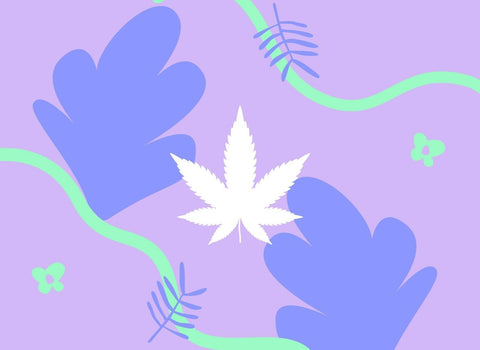
Research shows CBD plays an anxiolytic role in the body, but there’s a common misconception that adding THC to the mix will exacerbate symptoms instead of helping them. Reports conclude that small amounts of THC can decrease anxiety, too. Let’s explore how full-spectrum vs. broad-spectrum CBD can help relieve your anxiety.
Try our Energy Gummies to get the benefits of full-spectrum CBD for anxiety!


THC: 10 mg | CBC: 10 mg | CBD: 10 mg | CBG: 5 mg | CBN 5mg
Read our guide to full-spectrum vs broad-spectrum CBD for a deeper understanding of the differences between them.
How Anxiety Impacts the Body
Medical News Today reported that anxiety disorders are the most common form of mental illness in the United States, impacting close to 40 million people. Scientific studies confirm that anxiety is caused by a disruption of emotional processing activity in the brain.
People with anxiety experience an increase in activity in the limbic system rather than higher cognitive processing. This imbalance negatively impacts one’s ability to respond to stressors in a healthy way, causing tension, irritability, and worrisome and intrusive thoughts. It can even cause physical symptoms like increased blood pressure, rapid heart rate, and sleep deprivation.
39% of people with mental illnesses seek medication for conditions like generalized anxiety disorder, social anxiety disorder, panic disorder, and PTSD.
Since serotonin is a neurotransmitter responsible for mood and sleep, selective serotonin reuptake inhibitors (SSRIs) are often prescribed to block the reabsorption of serotonin into the body and increase its production. These medications can come with their own side effects. Many people are turning to microdosing cannabis as a benign alternative.
Using Full-Spectrum vs. Broad-Spectrum CBD for Anxiety
The cannabis plant contains many beneficial compounds, most notably CBD and THC.
CBD is the main non-psychoactive cannabinoid found in cannabis and is commonly extracted from the hemp plant. CBD indirectly interacts with the body’s cannabinoid receptors in the endocannabinoid system (ECS), antagonizing the receptors (CB1 and CB2) to regulate key functions like sleep, mood, learning and memory, emotions, pain, and appetite.
CBD can relieve stressors and alleviate anxious feelings. Results from animal studies showed that CBD has anxiolytic and antidepressant properties. It also assisted in physiological and behavioral responses to stress and anxiety. Clinical studies show that 79% of people using CBD extracts for anxiety experienced a decrease in symptoms within the first month.
There are three forms of CBD you can buy:
- Full-spectrum CBD
- Broad-spectrum CBD
- CBD Isolate
Full-Spectrum CBD for Anxiety
Full-spectrum CBD products contain a wide range of cannabinoids, terpenes, and flavonoids, including trace amounts of THC. Using full-spectrum CBD is how people can achieve the entourage effect. This effect refers to a natural synergy that occurs between cannabis compounds. Research on whether the entourage effect is real or not is still new, but evidence suggests that combining multiple cannabinoids, terpenes, and flavonoids will enhance each other’s effects.
Delta 9 THC is the most well-known psychoactive cannabinoid in cannabis and a key component of full-spectrum products. Unlike CBD, THC binds directly to the cannabinoid receptors in the ECS to assist in regulating homeostasis throughout the body. Medical research shows that CBD down-regulates THC’s psychoactivity to make it a more tolerable substance.
Research shows that THC is helpful for anxiety and depression in small amounts, subsiding panic attacks and improving focus and concentration. THC offers feelings of relaxation and euphoria to calm intrusive thoughts and ease the mind. Microdosing for anxiety helps people avoid the potential side effects of THC’s psychoactivity while still receiving its benefits. People with stage fright microdose THC to help calm their nerves without exacerbating their tension or paranoia.
Microdosing is the practice of using very low doses of THC. Low doses of THC can increase serotonin levels in the body. Serotonin is a neurotransmitter that regulates mood, cognition, and happiness. When the body is deficient in serotonin, one might experience low energy, irritability, lack of sleep, and negative thinking, which can lead to anxiety and mood disorders. Just 5 mg of THC is enough to offer mild euphoria and boost serotonin without feeling impaired.
Terpenes are another important aspect of using full-spectrum products for anxiety. These aromatic compounds are known to have antioxidant and neuroprotective properties. A scientific analysis discusses how terpenes can be useful for the treatment of mood and anxiety disorders.
If you’re thinking about taking CBD for depression, you might want to consider how coupling it with low amounts of THC can help. Microdosing THC for depression can help you reduce your symptoms without crossing the “getting high” threshold.
All of our high-quality full-spectrum hemp CBD gummies are made with microdoses of THC that are compliant with the 2018 Farm Bill for federally legal consumption. If you’re seeking an uplifting boost that improves your focus, you can try our Energy THC gummies with just 2.5 mg of THC.
Or, you can try our Bliss gummies, with 5 mg of THC for the ultimate chill vibes.
Broad Spectrum CBD for Anxiety
The difference between full-spectrum vs. broad-spectrum CBD is THC content. Broad-spectrum CBD contains multiple compounds of cannabis, such as terpenes, flavonoids, and other minor cannabinoids, but no trace amounts of THC. This CBD type is best for users who do not want to use Delta 8 or Delta 9 THC for their anxiety but still want to experience the benefits of CBD and other cannabis compounds.
When taking our broad-spectrum CBD gummies, you’re getting 10 mg of CBD that comes from a terpene-rich hemp extract blended with natural citrus flavors you can take at any time of the day.
CBD Isolate for Anxiety
CBD isolate products are pure CBD. Unlike full-spectrum or broad-spectrum CBD, which contain many cannabis compounds, isolate products contain CBD only. Many CBD isolate products are well-suited for localized pain, but haven’t demonstrated the same anxiolytic properties as full spectrum and broad spectrum CBD.
Of course, you’re welcome to test CBD isolate and see if it works to lower your anxiety.
Product QUIZ
Need help deciding what product is best for you? Take our quiz, just three questions until your perfect match!
Safety and Side Effects of Full-Spectrum and Broad-Spectrum CBD
Delta 9 THC is safe to take in low doses without impairment, but in higher doses, it could get you high. If you’re unsure about how much to take, read our guide on the best THC microdosing amounts.
Broad-spectrum CBD oils do not contain THC and will not get you high. This type of CBD is not known to cause side effects, even in high doses. Whether you’re buying broad-spectrum or full-spectrum CBD products, finding brands and products that you can trust is key.
Like nama. When using our full and broad-spectrum CBD products, you’ll never have to worry about consuming cheap CBD or other harmful ingredients. All of our products go through a vetting process with lab testing that we share with you to maintain content integrity and transparency with our users.
Every edible we offer you, including our Delta 9 edibles, is gluten-free, vegan, non-GMO, and sustainably sourced. We believe in using superior hybrid strains of hemp cannabis so you can get the best of both worlds with a perfectly balanced blend. Be sure to read our guide about the best strains for anxiety and focus to find out what might work best for you.
All of our vegan CBD gummies are carefully curated blends made with 100% American hemp extracts and all-natural ingredients and flavors. From our Anytime gummies to relax you throughout the day to our CBD gummies for sleep, our products are tailored to your needs and have gone through third-party testing for quality assurance.
Full-Spectrum vs. Broad Spectrum CBD Legalities
After the 2018 Farm Bill created a legal distinction between hemp and marijuana, hemp-derived products became federally legal in the United States. Hemp refers to cannabis that contains no more than 0.3% THC by dry weight. This means that our Delta 9 THC products are federally legal as long as they remain in compliance with this law. Some states do have restrictions on this, but you can read our guide to find out if Delta 9 is legal in your state.
Our products are carefully sourced from federally compliant hemp made in the USA, including our Delta 8 THC gummies. Delta 8 THC is a minor cannabinoid that has roughly half the potency of Delta 9. (Find out more about the difference between Delta 8 and Delta 9 here.)
Full-Spectrum vs. Broad-Spectrum FAQ
Both spectrums of CBD can be useful for treating anxiety. The difference between full-spectrum and broad-spectrum products is that full-spectrum CBD contains THC. Some people prefer not to take THC, so broad-spectrum is the better option for them. However, low doses of THC seem to lower anxiety, especially when taken with CBD.
When taking our full-spectrum CBD gummies, you’re getting low doses of quality hemp-derived THC to ensure you reap the benefits of THC without getting high. If you’re still on the fence about using THC, our broad-spectrum CBD gummies are THC-free with terpene-rich hemp extracts.
Broad-spectrum products should not be an issue if you’re being drug tested because they do not contain THC. Since CBD and other minor cannabinoids that appear in broad-spectrum products do not cause impairment, they are not of concern for drug tests. THC is the cannabinoid in question because it’s the psychoactive component that gets people high. Even in trace amounts in a full-spectrum product, THC could cause a positive test result.
Full-spectrum CBD can be a beneficial treatment for anxiety symptoms as long as its THC content is low. When taken in high doses, THC could cause adverse effects such as anxiety. But when microdosing THC in a full-spectrum product, users can experience the enhanced benefits of both cannabinoids without feeling high.
If you’re looking for low doses of THC and an uplifting experience, our Euphoria THC gummies have 10 mg of THC and CBD in fruity strawberry flavors.
When using a full-spectrum CBD product, it’s best to take a low-and-slow approach. This means taking low doses of cannabis to start, slowly increasing your dose over time if need be. 1-5 mg of THC is a recommended starting point to achieve the benefits of microdosing THC.
Our Energy THC gummies offer you just 2.5 mg of THC and 5 mg of CBD to keep you focused, productive, and uplifted all day long.
Full-spectrum CBD is legal as long as it comes from a hemp plant. Hemp refers to cannabis that contains no more than 0.3% THC by dry weight. If your product is derived from marijuana, it is considered a federally illegal, controlled substance because it contains more than 0.3% THC by dry weight.
Full-spectrum CBD products could get you high in some doses. Full-spectrum CBD contains THC, the most well-known psychoactive cannabinoid in cannabis. Be sure to check the THC content on your full-spectrum CBD label. Anything under 10 mg of THC is considered a low dose, offering you mild euphoria without feeling impaired.
The difference between CBD isolate vs. broad-spectrum CBD is that isolated products are pure CBD. Broad-spectrum products contain CBD along with minor cannabinoids like CBN, terpenes, and flavonoids.
Top Sellers
New? Start with our Ultimate Sampler!

THC: 10 mg | CBC: 10 mg | CBD: 10 mg | CBG: 5 mg | CBN 5mg
Resources
Blessing, E. M., Steenkamp, M. M., Manzanares, J., & Marmar, C. R. (2015, September 4). Cannabidiol as a Potential Treatment for Anxiety Disorders. PubMed Central (PMC). https://doi.org/10.1007/s13311-015-0387-1
Stoner SA. Effects of Marijuana on Mental Health: Anxiety Disorders. Alcohol & Drug Abuse Institute, University of Washington, June 2017. URL: http://adai.uw.edu/pubs/pdf/2017mjanxiety.pdf.
Anxiety: Symptoms, types, causes, prevention, and treatment. (n.d.). https://www.medicalnewstoday.com/articles/323454
Martin, E. I., Ressler, K. J., Binder, E., & Nemeroff, C. B. (n.d.). The Neurobiology of Anxiety Disorders: Brain Imaging, Genetics, and Psychoneuroendocrinology. PubMed Central (PMC). https://doi.org/10.1016/j.psc.2009.05.004
García-Gutiérrez, M. S., Navarrete, F., Gasparyan, A., Austrich-Olivares, A., Sala, F., & Manzanares, J. (2020, November 19). Cannabidiol: A Potential New Alternative for the Treatment of Anxiety, Depression, and Psychotic Disorders. MDPI. https://doi.org/10.3390/biom10111575
Shannon, S., Lewis, N., Lee, H., & Hughes, S. (2019, January 7). Cannabidiol in Anxiety and Sleep: A Large Case Series. PubMed Central (PMC). https://doi.org/10.7812/TPP/18-041
Niesink, R. J., & van Laar, M. W. (2013, October 16). Does Cannabidiol Protect Against Adverse Psychological Effects of THC? PubMed Central (PMC). https://doi.org/10.3389/fpsyt.2013.00130
Medicinal cannabis for the treatment of anxiety disorders - PubMed. (2022, August 1). PubMed. https://doi.org/10.31128/AJGP-04-21-5936
Ferber, S. G., Namdar, D., Hen-Shoval, D., Eger, G., Koltai, H., Shoval, G., Shbiro, L., & Weller, A. (2020, February 1). The “Entourage Effect”: Terpenes Coupled with Cannabinoids for the Treatment of Mood Disorders and Anxiety Disorders. PubMed Central (PMC). https://doi.org/10.2174/1570159X17666190903103923
Farm Bill. (n.d.). Farm Bill | USDA. https://www.usda.gov/farmbill
nama CBD FDA & Legal Disclaimer
Our products are not intended to diagnose, treat, cure, or prevent any disease. They are not a replacement for prescription medications and have not been evaluated by the Food and Drug Administration (FDA).
The information provided on this website does not, and is not intended to, constitute legal advice or any statements of the status of any laws. Any information, content, and materials available on this site are for general informational purposes only, and are not intended to be relied upon for any purpose.
Readers of this website should contact their attorney to obtain advice with respect to any particular legal matter including decisions on what products are, or are not, legal to sell, possess, or consume. No reader, user, or browser of this site should act or refrain from acting on the basis of information on this site without first seeking legal advice from their own counsel in the relevant jurisdiction.
Only your individual attorney can provide assurances that the information contained herein – and your interpretation of it – is applicable or accurate for your particular situation. Use of, and access to, this website or any of the links or resources contained within the site do not create an attorney-client relationship between the reader, user, or browser, and website authors, contributors, contributing law firms, or committee members and their respective employers.
About
Learn
Join us on this journey

© Copyright 2026 nama Products LLC. All Rights Reserved.
†These statements have not been evaluated by the Food and Drug Administration. These products are not intended to diagnose, treat, cure or prevent any disease. All information presented here is not meant as a substitute for or alternative to information from health care practitioners. Please consult your health care professional about potential interactions or other possible complications before using any product.
††The information provided on this website does not, and is not intended to, constitute legal advice or any statements of the status of any laws. Any information, content, and materials available on this site are for general entertainment purposes only, and are not intended to be relied upon for any purpose.

By clicking ‘Yes,’ you agree to our
Terms & Conditions and Privacy Policy
123 John Doe Street
Your Town, YT 12345
Store Hours
Sun: Closed
Mon-Fri: 9:00 - 17:00
Sat: 10:00 - 13:00
What to expect at pickup
Closed
Closing at 5pm
Closing at 5pm
Closing at 5pm
Closing at 5pm
Closing at 5pm
Closing at 1pm

![Buzz Packs™ [THC and CBD Powder Drink Mix]](http://www.namacbd.com/cdn/shop/files/nama_buzz_packs_thc_drink_pack_white_background.png?v=1769586244&width=480)
![Buzz Packs™ [THC and CBD Powder Drink Mix]](http://www.namacbd.com/cdn/shop/files/Buzz_Packs_Label.png?v=1769586244&width=480)
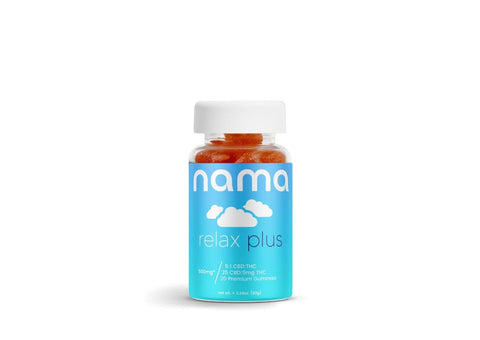
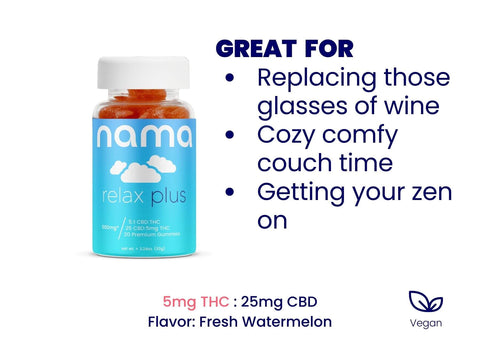
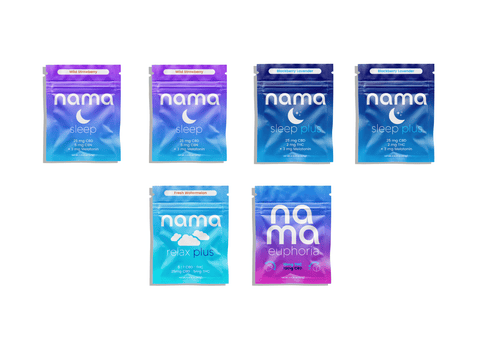
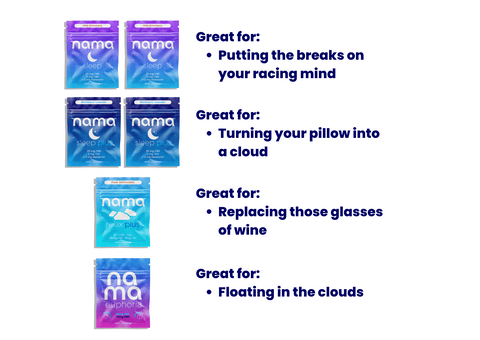


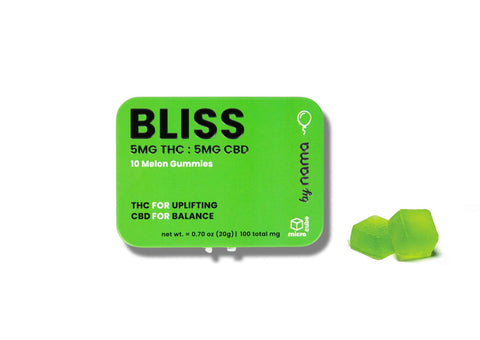
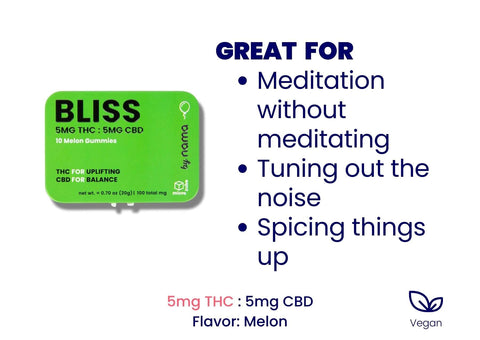
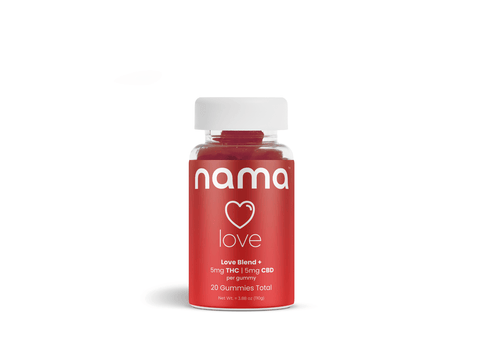
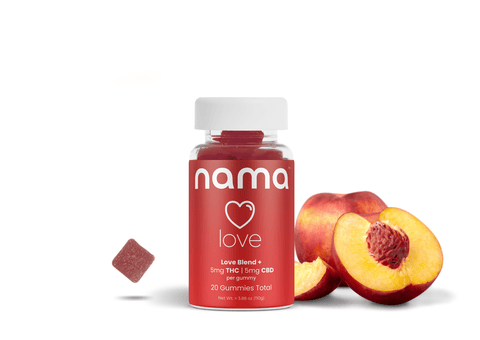
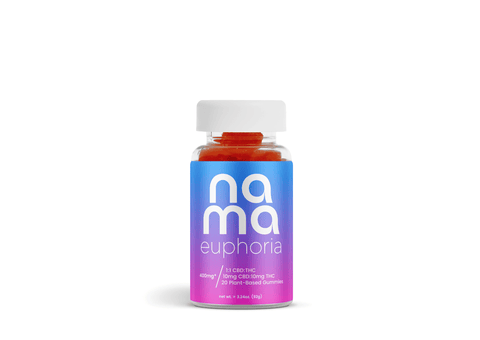
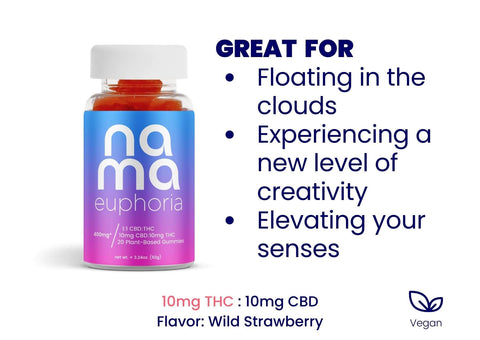







![Buzz Drops™ [THC Drink Drops]](http://www.namacbd.com/cdn/shop/files/nama_thc_buzz_drops.png?v=1711412866&width=480)
![Buzz Drops™ [THC Drink Drops]](http://www.namacbd.com/cdn/shop/files/buzz-drop-wine-comparison.png?v=1736882023&width=480)


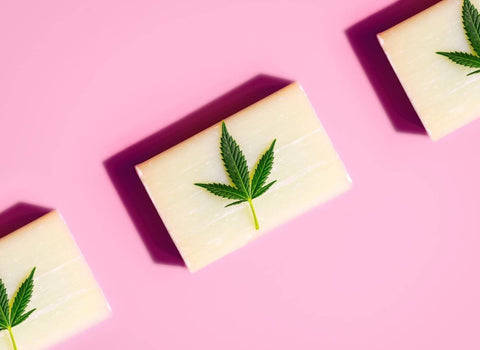
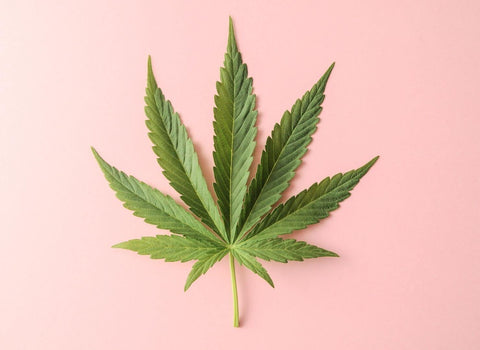

Comments (0)
There are no comments for this article. Be the first one to leave a message!